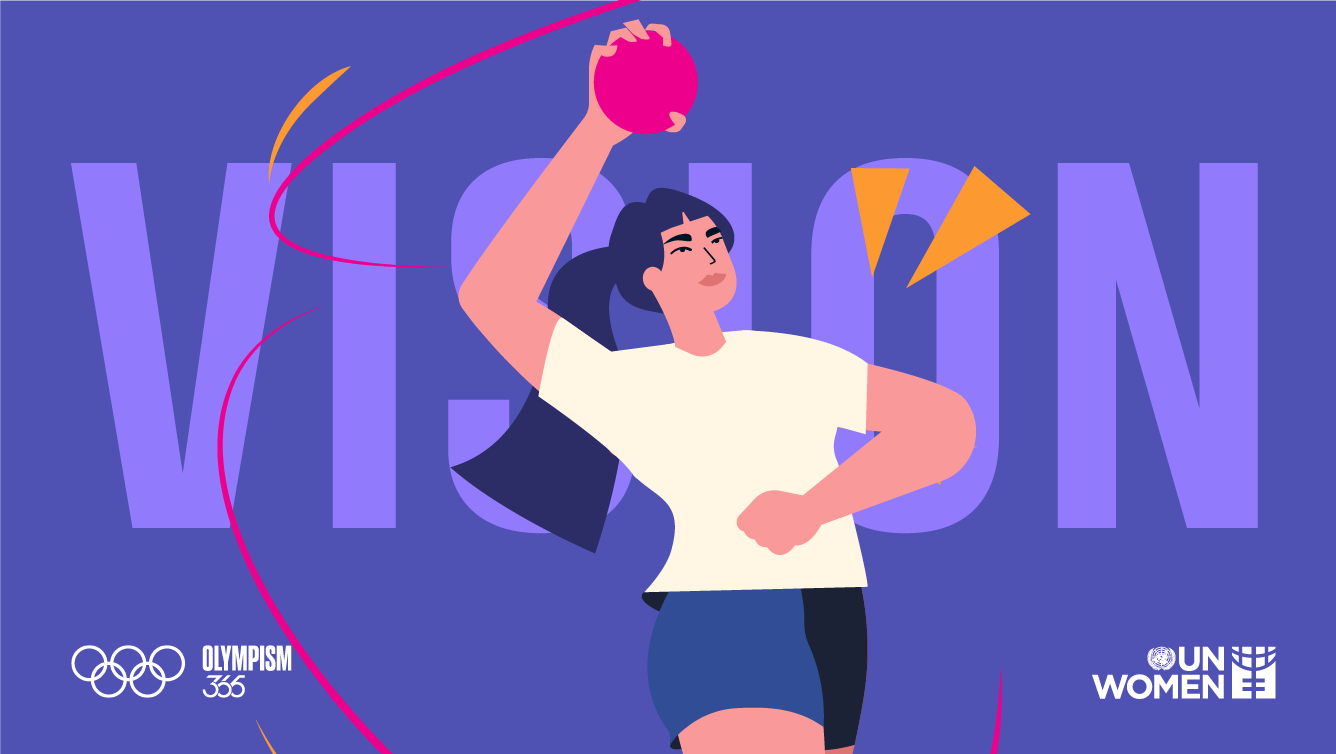Our Vision

UN Women envisions a world where gender equality in sports is not just an ideal but a reality, transforming sports into a dynamic force for empowering women and girls globally. This vision is rooted in leveraging sports as a universal platform to challenge stereotypes, promote inclusivity, and advocate for the rights and opportunities of women and athletes from underrepresented groups. Through policy dialogues, initiatives, campaigns, and tools, UN Women aims to mobilize global and local stakeholders, including sports organizations, athletes, and the youth, to foster an environment where every individual, regardless of gender, has equal opportunities to participate, excel, and lead in sports. This commitment extends beyond the playing fields, aspiring to create ripple effects across societies, promoting health, education, and equality, and contributing significantly to the Sustainable Development Goals.
Why gender equality in and through sport?
- Breaking Down Stereotypes: Involvement in sports can help challenge and change gender stereotypes and norms by showcasing the capabilities and achievements of women athletes, thus promoting a more inclusive and equitable society.
- Community and Social Bonds: Sports create a sense of community and belonging, fostering teamwork and cooperation. This is crucial for women and girls, providing them with networks that can support them both within and outside the sporting world.
- Career Opportunities: Gender equality in sports opens up more opportunities for women not just as athletes but also in careers such as coaching, sports administration, and sports journalism. This diversification can help narrow the gender pay gap in the sports industry and beyond.
- Empowerment Through Financial Independence: Participation in sports at any level can enhance the economic status of women by providing them with opportunities for scholarships, sponsorships, and professional growth. This financial independence is key to empowering women in various aspects of their lives.
- Improved Academic Performance: Participation in sports is often linked to better academic achievement. It helps develop skills such as discipline, time management, and a strong work ethic, which are beneficial for academic success.
- Life Skills Development: Sports teach important life skills such as leadership, teamwork, problem-solving, and communication. For girls, these skills are especially valuable as they navigate the challenges of growing up and pursuing careers in a male-dominated world.
- Mental Health Benefits: Engaging in sports has been shown to reduce symptoms of depression, anxiety, and psychological stress, offering a significant mental health boost for both women and men. For women, who historically have had limited access to sports, the mental health benefits are even more pronounced as participation can foster a sense of belonging and community.
- Boost in Confidence and Self-esteem: Participation in sports helps build confidence and self-esteem among women and girls. It challenges them to set goals, take risks, and push their limits, which translates into other areas of their life, empowering them to take on leadership roles and make autonomous decisions.
- Long-term Health Benefits: Regular physical activity is associated with a decreased risk of chronic diseases such as heart disease, diabetes, and cancer. For women, engaging in sports can also help address specific health concerns, including osteoporosis and breast cancer.
- Positive Body Image: Sports participation promotes a positive body image among women and girls by focusing on what their bodies can do rather than how they appear. This shift in perspective is crucial for mental and emotional health.
- Promotion of Equality and Respect: Sports can serve as a platform to promote values of equality, respect, and tolerance, contributing to a culture that values diversity and inclusion.
- Contribution to Sustainable Development Goals (SDGs): Gender equality in sports contributes to several SDGs, including quality education (SDG 4), gender equality (SDG 5), reduced inequalities (SDG 10), and peace, justice, and strong institutions (SDG 16).